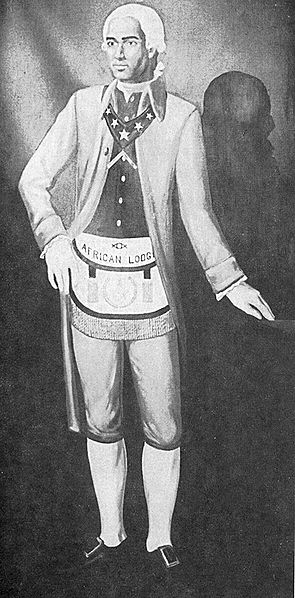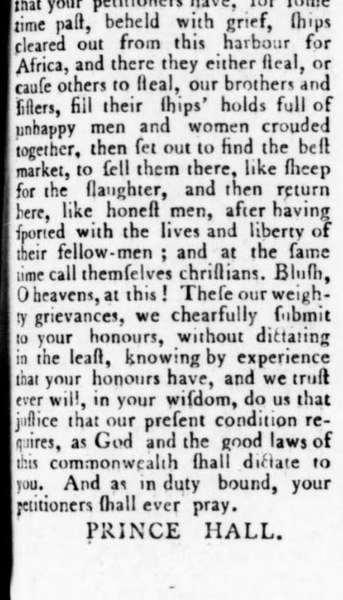Prince Hall was an American abolitionist and leader in the free black community in Boston. He founded Prince Hall Freemasonry and lobbied for education rights for African American children. He was also active in the back-to-Africa movement.
Illustration of Prince Hall wearing an African Lodge sash
"Petition of a Number of Blacks" reprinted in The American Museum Magazine, 1788
"Petition of a Number of Blacks" reprinted in The American Museum Magazine, 1788
Prince Hall Monument in Copp's Hill Burying Ground
In the British colonies in North America and in the United States before the abolition of slavery in 1865, free Negro or free Black described the legal status of African Americans who were not enslaved. The term was applied both to formerly enslaved people (freedmen) and to those who had been born free, whether of African or mixed descent.
Free woman of color with quadroon daughter (also free); late 18th-century collage painting, New Orleans.
"Learning is wealth". Wilson, Charley, Rebecca, and Rosa. Mixed-race slaves from New Orleans
Jean Baptiste Point du Sable, the first permanent settler in 1780s Chicago and the "Father of Chicago" who traveled up the Mississippi River from New Orleans. There are no known portraits of Jean Baptiste Point du Sable made during his lifetime. This depiction is taken from A.T. Andreas' book History of Chicago (1884).
Solomon Northup was born and raised a free negro in the free state of New York and was kidnapped and sold into Southern slavery in 1841, and was later rescued and regained his freedom in 1853








